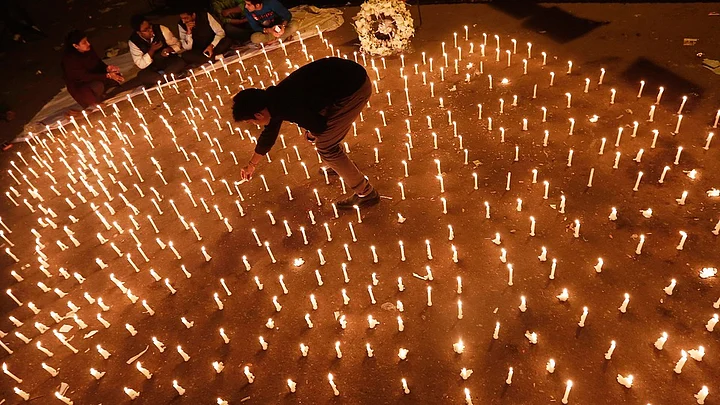A set of recent incidents involving gruesome rapes of women across the country has yet again raised several questions about Indian society and judiciary. We at The Quint believe that a rape survivor’s life doesn’t end when she is raped. And that even if our institutions - law, the judiciary, the hospitals - are failing a rape survivor, we as a society need to step up. And keep the fight going. We are publishing this article originally published on 25 June 2015 from The Quint’s archives as part of our #KeepFighting campaign.
Some judgements deserve scorn for judges’ “astute” observations and commentary, while others invite indignant contempt for gross illegalities and grave travesty of justice committed in the name of exercise of judicial discretion.
Judges of the high courts and Supreme Court are vested with wide discretionary powers which haven’t been defined by the Constitution. But latitude isn’t the same as a carte blanche for passing orders and judgements which cause irreparable harm and bring immeasurable agony to those who have to bear the brunt.
Justice P Devadass’ June 18 Order, granting bail to a rape convict and directing him and his victim to go for mediation, is one such ruling. The most obvious flaw is sending a rape case for “settlement” and “resolution” through one of the methods provided under ADR (alternative dispute resolution) is bereft of any legal authority. No statutory provision allows this and there isn’t any precedent either.
Errors Galore
The second grave error is that the judge has misinterpreted and misquoted judgements to substantiate his stance which, to be honest, is plainly risible. One doesn’t know whether this was deliberate, but it is certain that it also exposes ignorance of the law.
Justice Devdass draws maximum strength from the apex court’s 2012 ruling in the Gian Singh case, saying that it allows high courts to use their inherent powers under Section 482 of the Code of Criminal Procedure to direct cases for compromise.
Nothing could be farther from the truth. In Gian Singh, the court categorically stated that grievous offences such as rape, murder, or corruption allegations cannot be allowed a free pass and judicial indulgence.
Besides the morally jarring aspect, one wonders how rape, which is a non-compoundable offence (that is, where once a case goes to court, parties cannot enter into any settlement), could be dealt in such a manner. Also, is the power to allow offences to be compounded the same as exercise of jurisdiction under Section 482?
A reading of the Gian Singh judgement shows that it isn’t. The court drew a clear line and explained the differences between Section 320 (power of a court to compound offences) and Section 482.
Under the latter, a criminal complaint can be quashed in the interests of justice, although courts must be very circumspect and ensure that their untrammelled jurisdiction is not abused to bestow mercy where it isn’t deserved. This isn’t the same as compounding an offence, though the result could be the same – the accused is set free. No court, while compounding offences, could afford to violate or go beyond the provisions of Section 320, the judges held. And, that section makes no exception for rape, sexual assault, or offences listed in POCSO (Protection of Children from Sexual Offences) Act.
The third flaw is that Justice Devdass has overshot his jurisdiction by miles. The present case was an application of bail and suspension of sentence, under Section 389 of the CrPC. The accused had appealed against his conviction and it is yet to be decided. Thus, neither Section 320 nor 482 were even involved, although the judge’s decision substantially amounts to a veritable disposal of the appeal and an acquittal.
Even if this case was about the sentence of conviction and not only about bail, and the judge had acted similarly, he would have breached precedent. Because in the case of Narinder Singh (2014), the Supreme Court reiterated that no leniency should be shown once there is a conviction and appeal is pending.
‘Repeat Offender?’
Without any trace of irony, Justice Devdass cites his own ruling in another case. On February 3 he granted bail to a man accused of raping a minor and charged under the POCSO Act and Indian Penal Code. He also directed them to go for mediation and stated that once the process was undertaken “the said case is proceeding towards a happy conclusion.”

Judges enjoy immunity from any action – civil or criminal, for judicial errors. Not for acts of malfeasance while in office, or, as shockingly evident here, for acts of judicial delinquency.
In both cases, none of the victims were heard by the court, and from the order it can’t be made out if the state opposed this abominable demonstration of judicial benevolence. All the more reason for the Madras High Court chief justice to take appropriate measures, using both his administrative and judicial powers.
(At The Quint, we are answerable only to our audience. Play an active role in shaping our journalism by becoming a member. Because the truth is worth it.)
